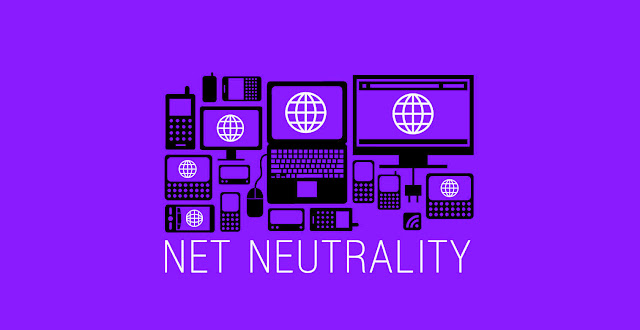What Happens When States Have Their Own Net Neutrality Rules?
California and New York hope to set a nationwide standard
FCC Chairman Ajit Pai spent 2017 dismantling Obama-era rules on net neutrality. A handful of lawmakers in liberal-leaning U.S. states plan to spend 2018 building them back up. It’s a development that the FCC anticipated — the commission’s rules include language forbidding states from doing this, warning against an unwieldy patchwork of regulations. But lawmakers in New York and California aren’t aiming to be exceptions to the national rules; they’re looking to, in effect, create their own.
In New York, Assemblywoman Patricia Fahy introduced a bill that would make it a requirement for internet providers to adhere to the principles of net neutrality as a requirement for landing state contracts. This would mean they couldn't block or slow down certain web traffic, and couldn’t offer faster speeds to companies who pay them directly.
Fahy said the restrictions on contractors would apply even if the behaviors in question took place outside New York. “The feds have, we think, walked away from a free and open internet. We’re using a side door — I don’t want to say a back door,” she said. “The reason we want to do this legislatively is that we know we can move faster than a court case.” She acknowledged that the approach could run afoul of limits on states attempting to regulate interstate commerce, but thought the bill could “thread the needle.”
Even supporters of state legislation on net neutrality think this may go too far. California State Senator Scott Wiener introduced a bill this week that would only apply to behavior within the state, saying any other approach would be too vulnerable to legal challenge. “We're expecting that there will be litigation,” he said. Wiener said that the internet providers who backed Pai’s plan shouldn’t flinch at his bill. “They say that, as a matter of internal policy, they adhere to net neutrality.”
But this wouldn’t be the first time a large state threw around its weight in ways that reverberate beyond its borders. The textbook industry, for instance, has long accommodated the standards of California and Texas. Just last month, more than a dozen states asked the Supreme Court to block a California law that required egg sellers to abide by certain guidelines in their treatment of hens, arguing it attempts to regulate the industry in other states.
“California has a long and questionable history of passing laws and regulations that end up applying to the whole country, because companies don’t want to or can’t change their products to sell them just in California,” said Geoffrey Manne, executive director of the International Center for Law & Economics, a research group. If California, Washington, and New York all passed similar guidelines, it could carry a significant amount of weight.
The internet doesn’t lend itself cleanly to state lines. It could be difficult for Comcast or Verizon to accept money from services seeking preferential treatment in one state, then make sure that its network didn’t reflect those relationships in places where state lawmakers forbade them, Manne said. Republican FCC Commissioner Michael O’Rielly raised this point at the December meeting when the rules were passed, saying the preemption provision in the rules protected internet providers against such a messy situation.
States pursuing legislation have argued the Federal Communications Commission has overstepped its authority in claiming it can preempt state laws. But O’Rielly believes the commission’s new rules tie the hands of states on a wide swath of Internet-related policy issues. In his December comments, he pointed out a provision banning states from adopting their own transparency requirements. “I would also view state broadband privacy actions as outside the scope of what is permissible,” he said.
State lawmakers are unlikely to stand down on that issue, either. More than 20 states introduced broadband privacy rules last year, a response to Congress’s decision to roll back another set of Obama-era FCC rules that required internet providers to ask permission before collecting personal information for commercial uses. Much of the attention over that debate also centered on California, where a bill to replace the FCC’s privacy rules stalled in the face of opposition from both internet providers and Silicon Valley companies. Advocates for those privacy bills promise to revive them as well. All signs point to a busy year for tech policy in statehouses.

